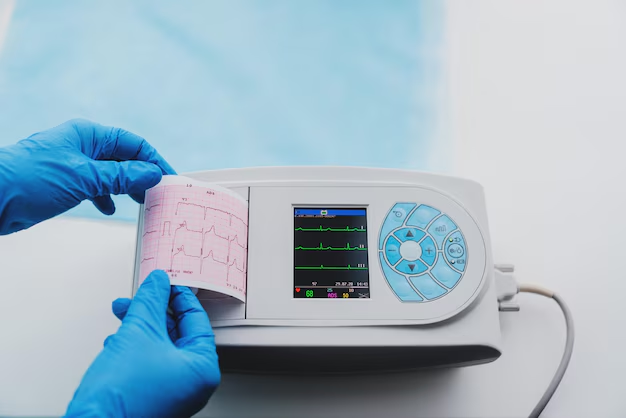Your Guide to Does Medicare Cover An Echocardiogram
What You Get:
Free Guide
Free, helpful information about Medicare Insurance and related Does Medicare Cover An Echocardiogram topics.
Helpful Information
Get clear and easy-to-understand details about Does Medicare Cover An Echocardiogram topics and resources.
Personalized Offers
Answer a few optional questions to receive offers or information related to Medicare Insurance. The survey is optional and not required to access your free guide.
Is Your Echocardiogram Covered by Medicare? Here's What You Need to Know
Medical expenses can stack up quickly, and if you're aware of your Medicare benefits, staying informed is crucial. One common medical procedure is the echocardiogram, a non-invasive test that uses sound waves to create images of your heart. But does Medicare cover this vital procedure? Let's explore the details, along with some additional financial support options you might find helpful.
Medicare Coverage for Echocardiograms
Medicare Part B, which covers outpatient care and preventive services, generally includes diagnostic tests like echocardiograms. If your doctor deems the test medically necessary—due to conditions such as shortness of breath, chest pain, or other heart-related symptoms—Medicare is likely to cover it. You'll typically pay 20% of the Medicare-approved amount after meeting your annual deductible.
For individuals enrolled in a Medicare Advantage Plan (Medicare Part C), coverage for echocardiograms is also generally included, though specific costs and requirements may vary depending on your plan provider. It's essential to review your plan's specifics or consult with your provider to understand all potential costs involved.
Steps to Ensure Coverage
- Consult Your Doctor: Have a detailed discussion about why the echocardiogram is necessary. This will ensure any documentation required for Medicare approval is thorough and accurate.
- Verify with Medicare: Check with Medicare directly or through your Medicare Advantage provider to confirm coverage specifics and any potential out-of-pocket costs.
- Understand Billing: Be clear on who will submit claims (your healthcare provider under Medicare Part B) and what your payment responsibilities might look like.
Options for Additional Financial Assistance
Even with Medicare, medical expenses can still create financial challenges. If you're worried about the costs, consider these financial aid programs and solutions:
Government Aid Programs
- Medicaid: Low-income individuals who qualify might receive additional coverage or help with Medicare expenses.
- Medicare Savings Programs: These assist with paying Medicare premiums, deductibles, and coinsurance.
- Supplemental Security Income (SSI): Provides extra financial support for those with limited income and resources.
Financial Assistance
- Charity Care Programs: Many hospitals offer programs that reduce or eliminate bills for eligible patients.
- Prescription Assistance Programs: For those who need medications, some pharmaceutical companies provide drugs at reduced cost or for free.
Debt Relief Options
- Debt Management Plans: Offered by credit counseling organizations, these can consolidate bills and reduce interest rates on medical debts.
- Bankruptcy: As a last resort, declaring bankruptcy might eliminate or restructure some debts, including medical bills.
Educational Opportunities
- Healthcare Education Grants: For those looking to switch careers or gain better employment, grants are available to pursue education in the healthcare field, increasing job stability and income potential.
In navigating healthcare and particularly costly procedures like echocardiograms, it's crucial to harness the resources available to you. By understanding your Medicare coverage and exploring supplementary financial assistance, you can alleviate the stress of medical expenses while ensuring you receive the care you need.
Quick Reference for Financial Assistance Programs
- 🏥 Medicaid: Supplementary coverage for those with limited incomes.
- 🏦 Medicare Savings: Assists with Medicare-related expenses.
- 🤝 Charity Care: Reduced or free hospital care based on income.
- 💊 Prescription Assistance: Access to affordable medications.
- 💳 Debt Management: Consolidate medical debts effectively.
- 🎓 Educational Grants: Opportunities for a new career path in healthcare.
Staying informed and proactive about both your health and financial options can make a significant difference in your quality of life and peace of mind.
What You Get:
Free Medicare Insurance Guide
Free, helpful information about Does Medicare Cover An Echocardiogram and related resources.

Helpful Information
Get clear, easy-to-understand details about Does Medicare Cover An Echocardiogram topics.

Optional Personalized Offers
Answer a few optional questions to see offers or information related to Medicare Insurance. Participation is not required to get your free guide.


Discover More
- Am I Elgible For Medicare
- Am I Enrolled In Medicare
- Am I Qualified For Medicare
- Are Adult Diapers Covered By Medicare
- Are Chemotherapy Drugs Covered By Medicare Part d
- Are Colonoscopies Covered By Medicare
- Are Covid Tests Covered By Medicare
- Are Cpap Machines Covered By Medicare
- Are Cpap Supplies Covered By Medicare
- Are Dental Implants Covered By Medicare
